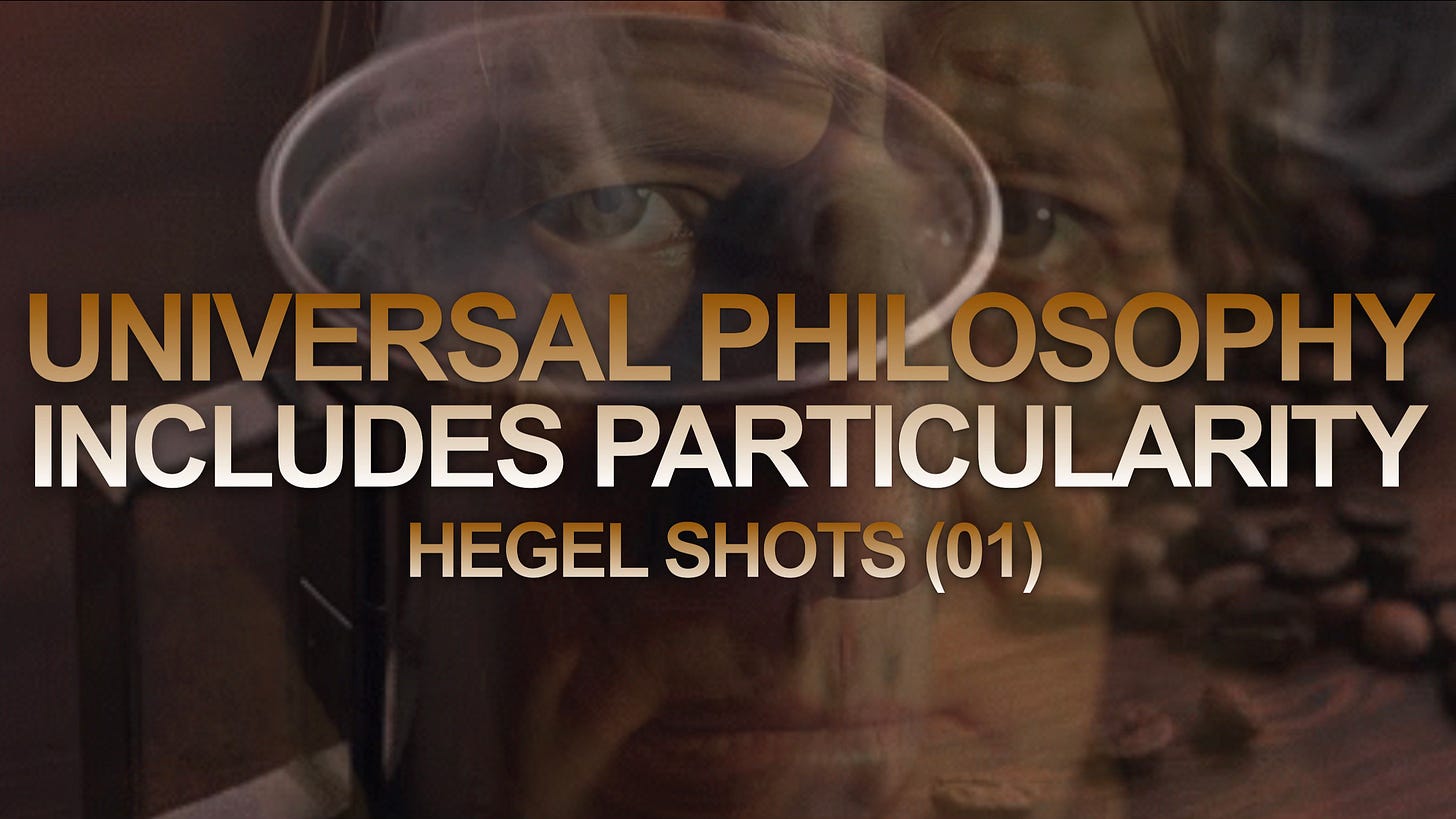“Shots” is a series aiming to introduce core philosophical ideas in digestible shots. To get access to this series you can become a paid subscriber on this Substack, or become a member of The Portal.
Upcoming schedule in The Portal:
Wednesday March 19th @ 7pm CET / Session 2: Contextualising “Destroy, Destroy…” (w/
)Sunday March 23rd @ 830pm CET / Real Talk on What Is Church/Religion? with Rob Zahn, Kevin Crouse
Wednesday March 26th @ 7pm CET / Reading Group 3: A Voice and Nothing More / The “Physics” of the Voice (w/
Crooijmans)Monday March 31st @ 830pm CET / Concept Cave on Metagelicalism
Hegel opens the Preface of the Phenomenology of Spirit with the following commentary on the nature of philosophy:1
“Philosophy moves essentially in the element of universality, which includes within itself the particular, it might seem that here more than in any of the other sciences the subject-matter itself […] were expressed in the aim and the final results[.] On the other hand, in the ordinary view of anatomy, for instance (say, the knowledge of the parts of the body regarded as inanimate), we are quite sure that we do not as yet possess the subject-matter itself, the content of this science, but must in addition exert ourselves to know the particulars. […] The case of such an aggregate of information […] has no right to bear the name of Science[.]”
First we get a basic formula for philosophy that can be expressed with the following representation of universality containing particularity:
U(P)
The question immediately arises, if philosophy, more than “any of the other sciences”, “includes within itself the particular”, what is Hegel suggesting here represents “universality” and what represents “particularity”? (and how might this differ from the “other sciences”).2
Keep reading with a 7-day free trial
Subscribe to Philosophy Portal to keep reading this post and get 7 days of free access to the full post archives.




